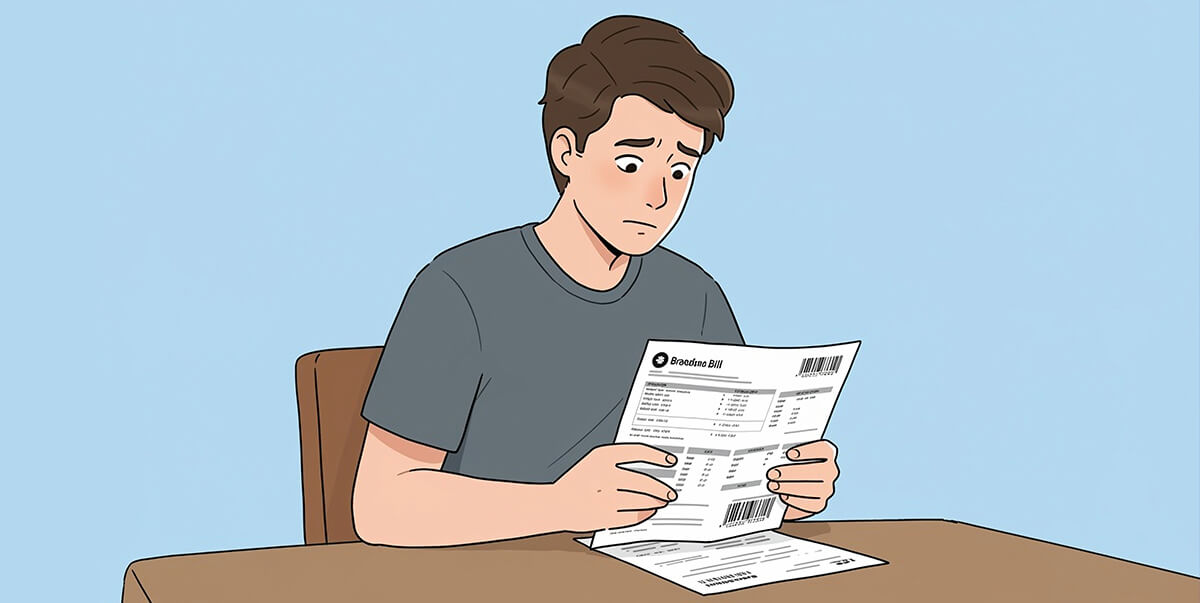
Dan Howdle September 16th, 2025

Being stuck in a broadband contract you’re not happy with can feel like being handcuffed to a router. But here’s some good news: a handful of broadband providers will now actually pay off your early-exit fees if you switch to them (albeit with certain terms and conditions, which we’ll get into a bit further down). In other words, they’ll buy you out of your contract so you can get faster speeds, better Wi-Fi or a cheaper deal without waiting months for your current contract to end.
To be fair this has been going on for quite a while now, but you probably wouldn’t know. The likes of EE and Sky offer it, but for some reason never, ever shout about it. That’s why we’re going to explore who offers it, the terms of the offer, and whether or not it’s really worth it.
Which broadband providers will buy you out (and how much)?
Obviously, not all providers will buy out your existing contract, and the ones that do, as mentioned in the intro, tend not to shout about it very loud. There are also a bunch of conditions attached in most cases – for example, minimum contract length with the new provider, or how EE won’t offer buyout if you’re switching from another provider under the BT Group umbrella (Plusnet, BT).
But, quite a few do offer a buyout, and it’s incredible how few people are actually aware of it. Here’s a quick snapshot of the main buy-out offers so you can see, at a glance, who’ll cover your exit, and what hoops you’ll need to jump through.
Who doesn’t (right now)?
As of today, the following medium to large providers don’t publicly offer a contract buy-out: Virgin Media, TalkTalk, Plusnet, NOW Broadband, Zen Internet, and Community Fibre. You’ll still see discounts or gift cards offered by them though, just not ‘we’ll pay some of your exit fees’ as a standing offer. Virgin Media, for example, often offers bill credit for new customers. You can check what special deals and offers are available right now using our comprehensive postcode checker.
Is it worth switching just for a buyout?
The million dollar question. Because it’s one thing to know about a buyout – they really soften the blow if for some reason you need to leave your existing provider early. But as a motivation to switch in and of itself? That’s kind of a different question.
A buyout sounds tempting – who doesn’t want their exit fees covered? – but in our opinion, no, it shouldn’t be the only reason to switch. You should think of it instead as a cushion for cases where you have to leave for some other reason and your current provider demands a huge exit fee. And while a new provider may give you anything from £150–£300 back, you might then be tied into a new 24-month contract with higher monthly costs. The maths matters here.
So, you’ll need to balance a potential short-term saving against:
- Monthly price – Will you actually be paying more over two years?
- Broadband speed and reliability – Is the new service a genuine upgrade?
- Router and Wi-Fi – Some providers bundle excellent Wi-Fi kit, others not so much
- Customer service – No point escaping one headache only to land in another. It’s important you uncover whether your new provider has policies or problems similar to those causing you to leave your existing one
In short: don’t let the buyout blind you. It’s a great perk, but it’s not a substitute for checking the deal is right for you overall.
Broadband near you
Our broadband postcode checker will find you the best deals, providers and speeds where you live. It’s free and takes less than a minute to check and compare.
How to claim a buyout
There’s no single rulebook when it comes to claiming a contract buyout. Each provider has its own quirks – some want you to upload a final bill within seven days, others give you up to three months. Some pay in bill credit, others as a bank transfer. But what they all have in common is the same broad process. To wit: if you keep these steps in mind, you won’t go far wrong:
- Switch and activate – You need to have your new broadband service live with your new provider before you can claim
- Pay your old provider’s exit fees – Sadly, you still have to pay upfront. The buyout is reimbursement to you – your new provider won’t pay it for you
- Get your final bill – This is the document that shows the early termination charge you’ve paid
- Submit a claim – Usually through an online form or email, attaching your final, paid bill as proof
- Wait for credit or refund – Timing varies. It could be a couple of weeks, or it might line up with your first or second bill from the new provider
The golden rule? Keep everything. Save copies of your old bills, your final statement, and your payment confirmation. Because if you miss your new provider’s claim window or lose a key document, you could lose the buyout altogether. Providers can be pretty harsh about this to so don’t expect leniency if you put even one foot outside of their terms.
Final thoughts
Contract buyouts are nice in the sense they (if available and you qualify) take the sting out of leaving your current provider early. But they’re not free money! They come with conditions, long contracts, and you’ll need to prove your exit fees. And let’s not forget, in order to qualify for a buyout bonus, you’re going to have to have already shelled out similar money to leave your existing provider. Buyouts don’t pay, but they do, under certain circumstances, pay you back.
So if you’re already thinking about switching because you want faster speeds, better Wi-Fi, a cheaper deal, or more commonly, you’ve just had it up to here with your current provider for whatever reason, they’re well worth knowing about, just not generally worth switching because of. If you’re happy where you are, they’re not going to be enough on their own to justify moving.
Either way, it’s always worth running your postcode through our broadband checker to see what’s available. You might find a provider that not only buys you out, but also gives you a better deal t’boot.
